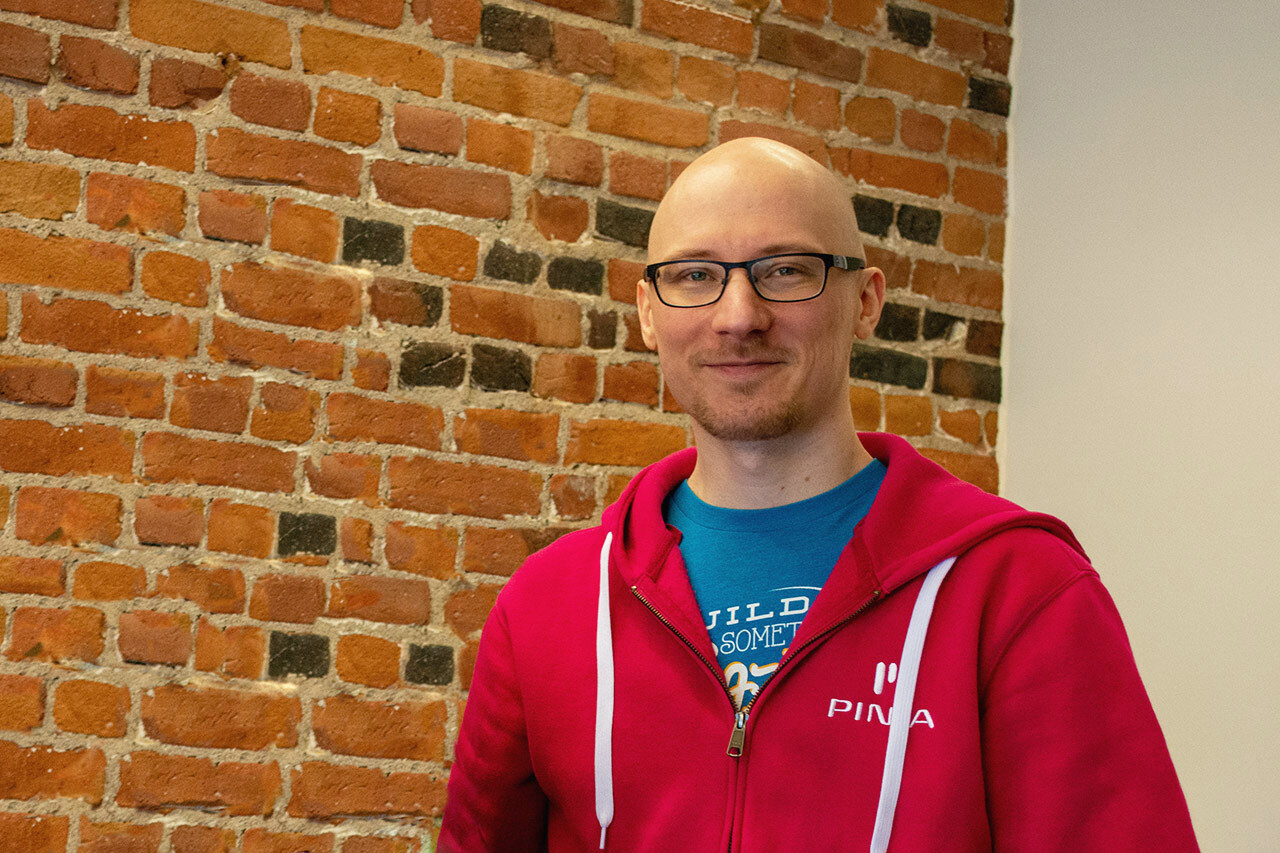
Pinja strongly encourages the development of one’s competence, guaranteeing that the work is pleasant, and the services are functional. Therefore, Pinja has introduced a training promise, within the framework of which every Pinja employee is able to spend ten days a year on developing their knowledge and professional skills.
– Competence development and continuous learning are cornerstones of Pinja’s success in the ICT and software industry and an essential part of responsible business. Our internationally operating clientele and business-critical applications require a high level of diverse expertise throughout the service chain: from sales to service design, software development to testing and knowledge management services, data security, cloud platform, and production IT consulting services, as well as production services. Moreover, in our industry, change is the only thing that’s permanent, and continuous learning is essential, says Veli-Matti, CEO of Pinja.
Pinja’s training promise aims to encourage every Pinja employee to develop their professional skills according to the situation and needs and to help them advance on their development path. Competence and professional development can occur in many ways, such as through external or internal training, self-studying, on-the-job learning, pair or group work, service demos, and internal knowledge sharing. Our experienced and specialized experts also act as mentors alongside their work.
Internal training and promotion of one’s skills in the form of a Lab Day event
Antti Nevala, who works at Pinja as the software team leader, has become very familiar with self-education and development over the years. So, he takes advantage of the training promise by participating in e.g. the Lab Day event.
Lab Day has been held at Pinja once a month since 2009, and Antti has participated in them since the beginning. It is an event that any employee can attend, and there is no specific content. The day can include anything from internal sparring to watching videos and solving problems together or alone.
Lab Day is also a great way to organize internal training and share expertise internally, for example, in workshops.
According to Antti, Lab Day is a nice one-day-long break from the project that is currently in progress. It is also an opportunity to study the things that promote one’s skills and activities and delve into an issue encountered in the project.
– Lab Day is the easiest way to implement Pinja’s training promise, and it is worth using throughout Pinja. Lab Day is also a great way to organize internal training and share expertise internally; for example, in workshops, Antti sums up.

24-hour Hackday Marathons
In addition to Lab Day, Antti has spent training days participating in Hackday events organized by Pinja. Hackday has its root in software production, and the purpose of the events is to implement different ideas to a specific theme in teams within 24 hours. The events have also been pleasantly competitive, as the best productions are rewarded. Of course, everyone can use as many hours of a day that they want, but our veterans take full advantage of every hour:
– You can participate for as many hours as you like – you don’t have to do the full 24 hours. But it has been quite functional to code stuff late into the night, visit the office sauna, and then present the result in the morning, Antti says.
In training in Finland and abroad
Pinja’s HR and supervisors are well aware of what kind of training is going on at any given time, and this is how Antti has received tips on good and necessary training in Finland.

In addition to Finland, Antti has on a few occasions applied for training from international events organized by SensioLabs, the company that develops the Symfony PHP framework. Participation in conferences organized by SensioLabs resulted from his own and colleagues’ activity and interest in the PHP framework world. According to Antti, in addition to the conference day, the social events of the trips are also enriching.
– When you talk to people and find that different countries and companies struggle with the same problems or have made similar solutions as you have, it provides energy and motivation to work on your own thing, Antti says.
Training helps stay in the spirit of the times
Noora Valve has also made extensive use of the opportunity provided by Pinja’s training promise. Noora works in Pinja’s marketing team, and her job description also includes graphic design, service design, and UX design.
Noora is also familiar with the Lab Day and Hackday events. Still, she has also used the training promise for basic studies in Service Design at the University of Lapland, which she completed alongside her work. Noora used the training days for some independent and group assignments. She found group assignments and discussions valuable and conducive to her learning.
According to Noora, service design is diverse, and she has utilized the learnings in her work. She thinks that service design does not always have to relate to a specific client case, but the methods can be used in everyday work.
The training promise is a win-win situation for Pinja and the employee – both gain new capital, not to mention the benefits our clients get.
Noora says that continuous training is also essential because it is good to stay up to date in matters related to one’s work. Next, she intends to find suitable marketing training, and the following sentence nicely summarizes her own ideas of the importance of training:
– The training promise is a win-win situation for Pinja, and the employee – both gain new capital, not to mention the benefits our clients get.
Read more
Blog: What is a coded mystery room like?
Blog: Impressions from SymfonyCon 2018
Check out our vacancies
Back to the Pinja Blog
Categories
- Career at Pinja (68)
- Manufacturing (46)
- Knowledge Management (45)
- Production Development (44)
- Software Partnership & Tools (42)
- Sustainability (37)
- Wood and Forestry (37)
- Bioenergy and Recycling (29)
- IT Support and Outsourcing (24)
- Ecommerce (23)
- Maintenance (22)
- Artificial Intelligence and Machine Learning (15)
- Public Services (9)
- Compliance (1)
